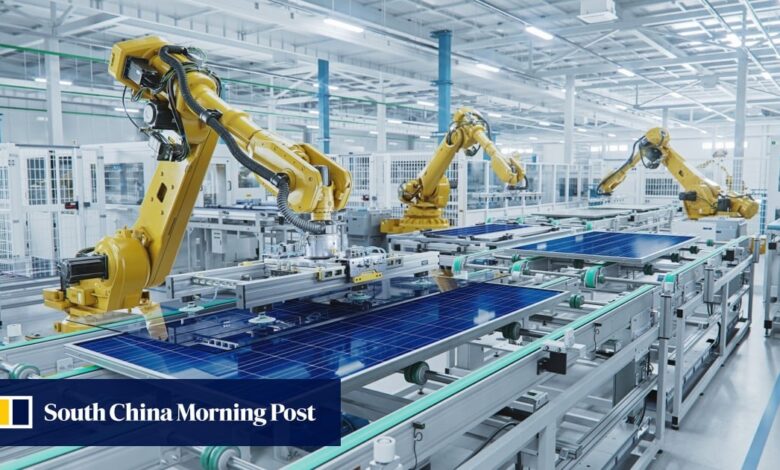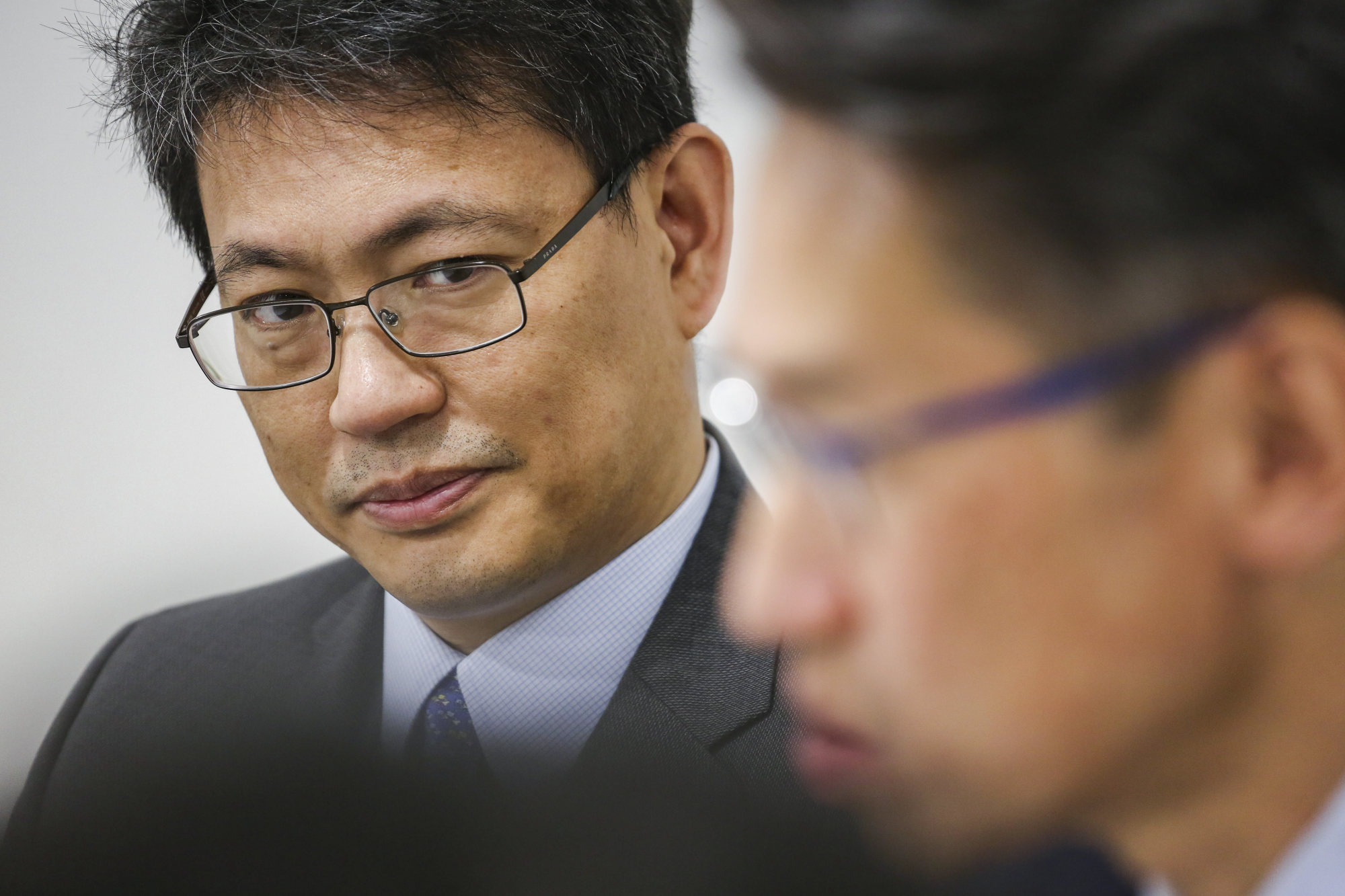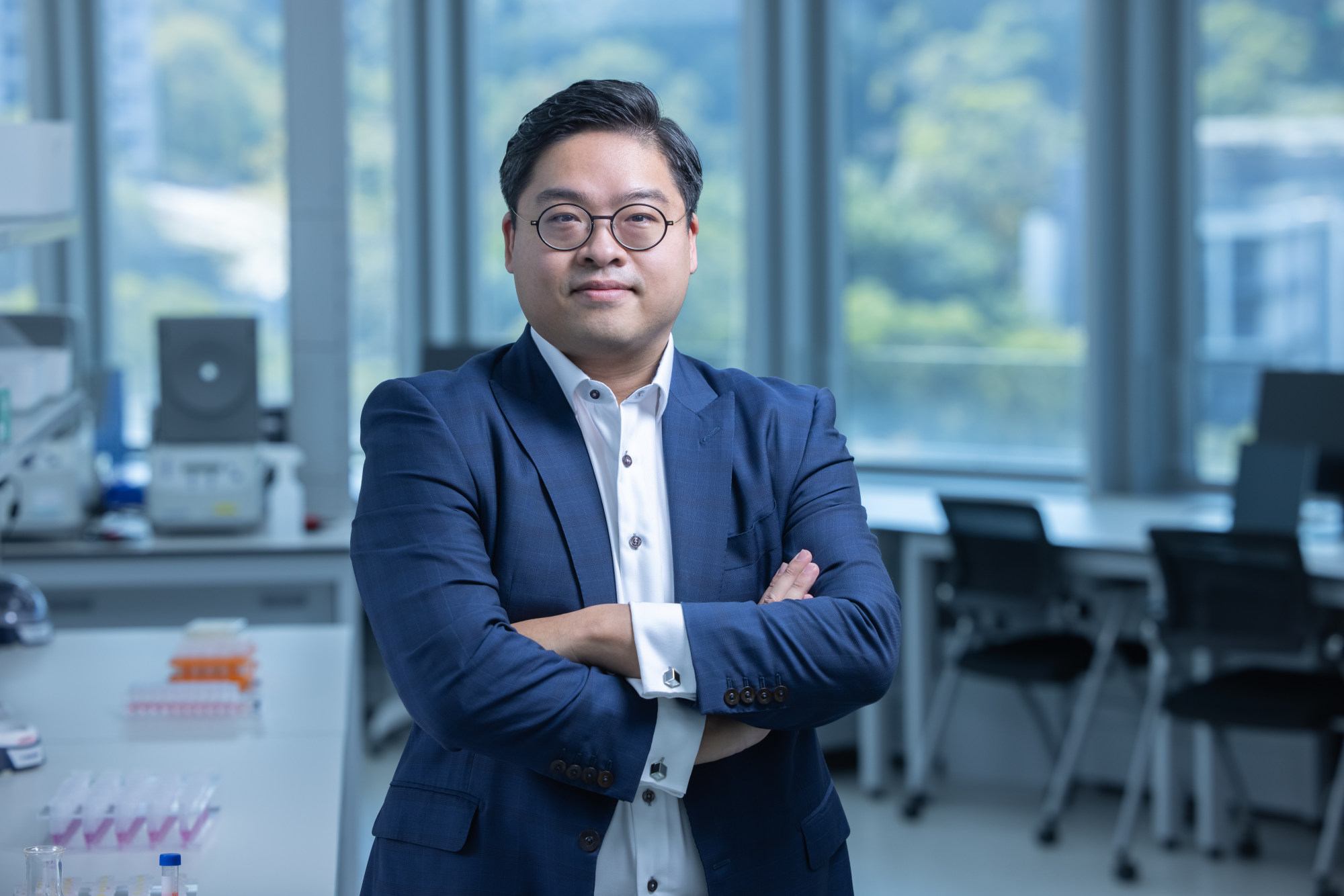Hong Kong policy address 2023: authorities to set aside HK$10 billion for emerging industries, offer to subsidise new production facilities

[ad_1]
Hong Kong will set aside HK$10 billion (US$1.28 billion) in government funds to support emerging industries, including advanced manufacturing and biotechnology, and subsidise eligible companies looking to build production facilities in the city.
Chief Executive John Lee Ka-chiu unveiled the New Industrialisation Acceleration Scheme on Wednesday as part of his second policy address and said the plan would launch next year.
Under the scheme, eligible businesses setting up production facilities will receive government funding worth half the company’s investment. Those set to benefit are enterprises specialising in life and health technologies, artificial intelligence (AI) and data science, advanced manufacturing, as well as new energy technologies.
The matching scheme will be subject to a funding ceiling of HK$200 million per applicant.
900 technology companies drawn to Hong Kong amid city’s innovation drive
900 technology companies drawn to Hong Kong amid city’s innovation drive
“We will also explore the feasibility of allowing enterprises under the scheme to employ non‑local technical personnel more flexibly, and relaxing the limitation of the number of subsidised research talent that can be employed,” Lee said.
But a government source said applicants would have to invest at least HK$200 million in manufacturing facilities and equipment to be eligible and aimed to target companies hoping to establish larger-scale manufacturing facilities in the city.
“We have the goal of promoting downstream development in emerging industries and achieving the target of manufacturing contributing to 5 per cent of gross domestic products (GDP) by 2030, which is a key performance indicator listed on the innovation and technology blueprint,” the source said.

Professor Christopher Chao Yu-hang, vice-president of research and innovation at Polytechnic University, said attracting top‑notch innovation and technology (I&T) enterprises to set up shop in Hong Kong appeared to be the scheme’s key focus.
“Cities in the Greater Bay Area, such as Shenzhen, provide subsidies for large companies to settle there. Without incentive funding, the government’s progress in attracting top-notch companies would be slow,” the academic said.
The bay area refers to Beijing’s ambitious initiative to integrate Hong Kong, Macau and nine mainland Chinese cities into an economic powerhouse.
Chao said the scheme could also have a positive effect on local research efforts and drives to cultivate talent.
“If industrial chains are established in Hong Kong, it should facilitate faster progress in university research. People always say students who pursue research in universities face limited career prospects after completing their doctoral degrees,” he said.
“If these companies can establish a presence, they can hire these students, thereby nurturing talent in Hong Kong.”
Data centre operators say Hong Kong falling short on renewable power, space
Data centre operators say Hong Kong falling short on renewable power, space
Ricky Chiu Yin-to, CEO and chairman of biotech company Phase Scientific, said he welcomed the policy direction but stressed the importance of improving the commercialisation of university research and development.
“Processes such as learning market responses, clinical testing and regulatory approvals are among the most challenging and risky aspects in the industry, especially for start-ups,” the biomedical scientist said.
“The gap between transitioning from research to production needs to be narrowed and is where the government needs to focus its efforts.”
Lee on Wednesday also floated plans to create a government office next year that would pave the way for the establishment of the Hong Kong Centre for Medical Products Regulation, promoting the city’s development as a biomedical hub.
The centre is expected to be upgraded to a statutory body overseeing the drug approval process and later issuing the city’s own registration certificates without relying on other drug regulatory authorities.

Under the current system, drugs can be registered for use in Hong Kong if pharmaceutical companies submit certificates from at least two of the 36 recognised bodies based in mainland China or overseas.
In the short term, Hong Kong will speed up the approval process for pharmaceutical products targeting rare or severe diseases by reducing the number of required certificates to just one.
Companies will need to submit local clinical data assessed by experts, in addition to sharing reports on the products’ use in the city after they are approved.
Both the University of Hong Kong and Chinese University’s medical schools said they welcomed the government’s plans to transform the city into an innovation hub for the field.
6 key takeaways from Hong Kong leader John Lee’s policy address
6 key takeaways from Hong Kong leader John Lee’s policy address
On the technology front, the government plans to establish an AI supercomputing centre at hi-tech park Cyberport.
The initiative would kick off in 2024 and launch in phases, with the aim of supporting local demand for computing power to enhance the city’s research and development capabilities, as well as growing an ecosystem for the AI industry.
According to the government source, the scheme would be based at Cyberport as it was the city’s hub for information technology and was set to expand its facilities. The location also made it easier to maintain connections with industry players, the insider said.
“The existing infrastructure at Cyberport is capable of supporting the equipment requirements for a supercomputing centre,” the source said. “To meet the urgent demand, it will initially utilise its existing resources to provide partial computing power starting from next year.”
The centre would also operate under a commercial model, with the government to consider the initiative’s affordability and exploring the prospect of introducing funding measures, the insider added.
Hong Kong to open to first university of applied sciences next year, John Lee says
Hong Kong to open to first university of applied sciences next year, John Lee says
The policy address also covered the establishment of a Microelectronics Research and Development Institute at Yuen Long InnoPark in 2024, which would support collaboration efforts between universities, research centres and other industry players in the field of third‑generation semi‑conductor core technology.
The government insider also said the institute would set up two major pilot production lines to conduct research and testing on silicon carbide and gallium nitride, both promising compounds in the field of new material technology, as part of growing push towards electric vehicles and renewable energy sources.
[ad_2]
Source link





